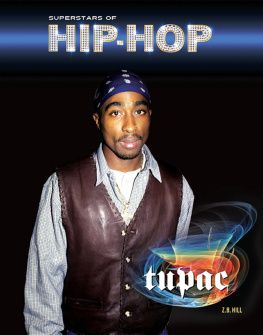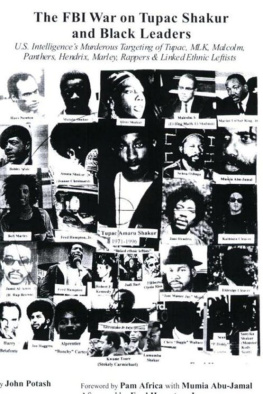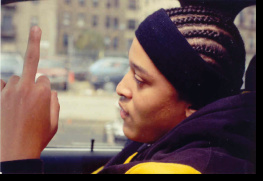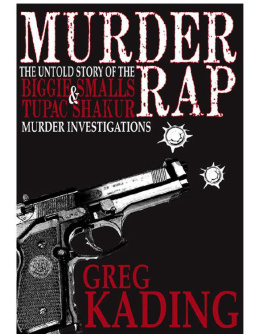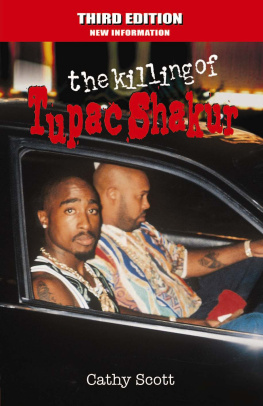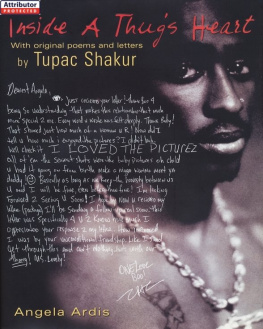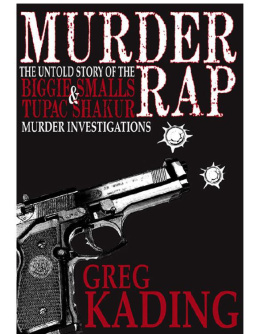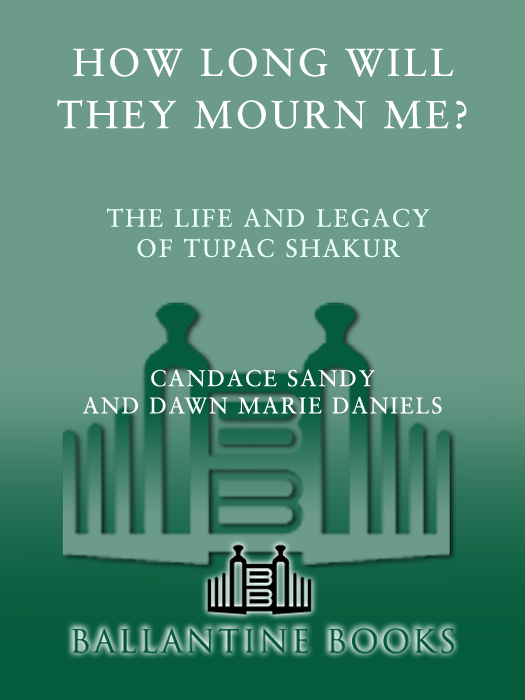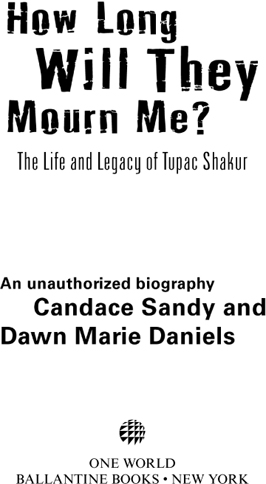Books published by The Random House Publishing Group are available at quantity discounts on bulk purchases for premium, educational, fund-raising, and special sales use. For details, please call 1-800-733-3000.
Acknowledgments
We would like to thank an extraordinary team that helped make this book possible: Melody Guy and Danielle Durkin from Random House, Congressman Gregory W. Meeks and Simone-Marie Meeks and staff, Mom and Dad, and the Samuel, Hamlet and Fraley families. Thanks to Ann Brown, Joella Irving, and Chanel Skyers.
Gwendolyn Quinn and Robyn Ryland-Sanders and the Black Public Relations Collective, Jelani Bandele Octavia Bostick, Denise Hidden Beach, Katrina Boswell, Bill Carpenter, Ronda Carson, Lisa Chase-Patterson, Dee Dee Cocheta-Williams, Lisa Knox, Eric Moore, Jackie O, and Tonya Payton.
Alithia Alleyne, Cristy Colon, Maggie and James Goring, VP Records, Selina Johnson, Rachia Hazel, Curtis Taylor, Ursula Miller, The Wax, Ronnie Wright, and Arnold Turner.
Contents
PROLOGUE
Death Around the Corner
Even though Im marked for death, Im a spark till I lose my breath.
T UPAC S HAKUR
Some say rap is a new form of black exploitation, weaving the theme of death systematically through hundreds of songs, as they engross a generation through music videos while reassuring them that violence is all right. If you went out in a hail of bullets, like a ghetto soldier or the idolized characters in movies like Scarface, The Godfather, and Heat, you became a ghetto legend. But are any of us truly aware of when our lives will slip away? Did Tupac Amaru Shakur know about his impending death? Gangsta rap and its stars first made a fortune from stories of drugs, drive-bys, the code of money, power, and respect. The partying, women, and sex was inevitably followed by the glorified death of another brother on the streets, but only they knew what was going on in our hoodAmerica didnt care unless it crossed the invisible line.
In the movie Heat, the lead character played by Robert De Niro states, Never get attached to anything that you cannot walk away from in thirty seconds or less. That is the code for the streets; movie clips become codes by which street hustlers live and die. It becomes easier this way, when you take out rival gang members who may have played matchbox cars with you in elementary school. Murder was justice exacted for deals gone bad, turf taken, and respect not given.
The media coldly and analytically report just another murder, but the streets create an insider folklore legend celebrated on neighborhood corners, on stoops, and in jailhouses for the fast, colorful life the victims lived. While through this urban legendry they ultimately get the respect they always yearned for in life, their families and loved ones are torn apart.
Glorifying death and the gangsta lifestyle through music had become popular among various rappers such as NWA (Niggaz With Attitude), Ice T, Bone Thugs and Harmony, Biggie Smalls, and Snoop Dogg. But Tupacs lyrics have stayed with us much longer, as if haunting a generation who witnessed his life unfold. One has to wonder whether he was a prophet or an eerie example of life imitating art.
Tupac Shakurs art was expressed through love letters to his people, whom he intimately understood and appreciated for the realness they were experiencing. On one side were the broken down and disenfranchised who succumbed to the system, and on the other were the rebels of the underground who were tired of living this hell on earth and were ready to fight. His music shared his lessons learned, his request for forgiveness, his impending death, and warnings to victims of revenge. He asked what would happen in If I Die 2 Night?, a song featured on both Me Against the World and Tupacs Greatest Hits:
And I hope Im forgiven for Thug Livin when I die I wonder if heaven got a ghetto for Thug niggas Headlines readin MURDERED TO DEATH, my last breath
Take a look picture a crook on his last stand Motherfuckers dont understand, if I die tonight
It depicts a man ready to stop worrying about what happens next; he wants to be given peace as he takes his last breath. His legacy unfolds as a headline on a daily newspaper: Murdered to Death. Many of the producers who worked with Tupac said he often expressed whatever was on his mind that day in the studio. Was Tupac exercising the same philosophy about death and its glorification, which has become part of the life in the hood?
Death to the young and black in America is a normal and expected occurrence. The New York Times reported that in certain communities, death is looked forward tothat children in grammar schools prepare what they will wear at their funerals in advance. It left Tupac to wonder out loud through song if heaven has a ghetto:
Let the Lord judge the criminals
If I die, I wonder if heaven got a ghetto.
What would you do if you knew you were going to die? How would you handle the news? Would you give up? Would you fight? Would you dare to dream though the odds seemed stacked against you?
No one really knows if Tupac Amaru Shakur knew he was going to die young. Many who knew him have said he felt he was a marked man. As fans of his music and silent observers of his life, we can only speculate that this sense of impending death contributed to his meteoric rise. At the time of his death at the young age of twenty-five, Tupac had more goals he wanted to accomplish. Many can attest that he accomplished those goals tenfold and more.
Like a not-so-subtle birthmark, was death the ever-present factor that gave Tupac his search for deeper meaning in a seemingly hopeless America for a young black man? Whether he felt he was marked for death because of his heritage, because he was the son of a Black Panther and godson of the persecuted and convicted Black Panthers Assata Shakur (also known as Joanne Chesimard) and Geronimo Pratt, or because he was a young black man in a society that gave up on black men before they were born, we will never know. Tupac grew during a time of evolutionary change for black people, surrounded by the revolutionaries who so desired to create social and economic change by any means necessary. Watching his motherhis role modelstruggle because she, too, was marked by the government for her belief in equality for people of color in some sense made Tupac a sacrifice to that revolution. Was his drive born out of this struggle, as well as his sense of impending doom?
Some speculate that what could have been his obsession with death presented itself later. Perhaps it was driven by his many direct confrontations with the policefrom his first beating by the police in Oakland in 1991 to his shooting of two police officers in Atlanta in 1993. Having such a great and public dissension with an army in blue across the country could make anyone paranoid, let alone feel he had a bulls-eye on his back wherever he went. An atmosphere of mistrust can drive one to want to push beyond the constraints of society, both physically and mentally.
Many admirers of Tupacs music trace his transition and the evolution of his fixation with mortality in his lyrics and through his films. From the jovial lyrics of Digital Underground to his first solo album 2Pacalyspse Now, you can see the development of his independence and his individual persona.


